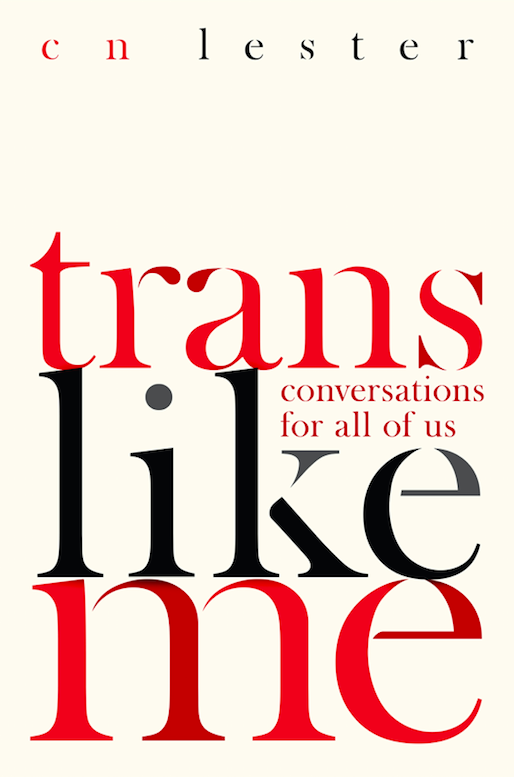Like many children, I adored the Narnia books by C. S. Lewis, and reread them constantly. The scene between Susan, Peter, and the Professor in The Lion, the Witch, and the Wardrobe always had a special resonance for me; it felt like there was an important lesson to be learned. Susan and Peter have come to ask for advice on what to do about Lucy’s unbelievable stories of falling through the back of a wardrobe and finding a brand new world. The Professor, whom we know to be extremely wise by his eccentricity and book-filled study, considers this problem, and asks Susan and Peter if Lucy is either mad or a liar. They all agree it is clear that she is neither. Well, says the Professor: “You know she doesn’t tell lies and it is obvious that she is not mad. For the moment then and unless any further evidence turns up, we must assume that she is telling the truth.”
When I have to convince the skeptical of the truth of my transness, I very often feel like Lucy.
It’s amazing the number of people who’ll try to argue other people out of being trans, as if no one else has ever tried before. Sometimes those doing the arguing are motivated by concern, and sometimes by annoyance, confusion, or outrage. Their “arguments” are presented as rational undoings of our supposedly broken reasoning, as though being trans is a riddle which can be solved with the correct interpretation.
Perhaps even stranger are those people who present no arguments at all but who wonder, gently, if we’ve considered just . . . not being trans. Just, maybe, avoiding it until it goes away. It often comes down to the split between words and deeds, the question: “Well, why do you have to do anything about it?” I heard that one a lot when I first informed people of my intent to medically transition. I suspect it’s the same kind of reasoning as the injunction to do as you like in private, but make sure you don’t do it in the street and frighten the horses.
Underlying all of this is the idea that being trans is something unfortunate, impossible to understand, and better to ignore. Something you could probably change, if you put your mind to it, or grow out of, if you’d just see sense. That can turn so easily from “Why do you have to do this?” to “Why are you like this in the first place?” I don’t have a quick and easy answer as to why I’m trans, no more than as to why I’m a pianist, or how I experience the color blue.
I don’t have to know every why of who I am to know the truth of my existence, and know that I can only find happiness by embracing that truth. It doesn’t make sense to me to try to reduce an enormous spectrum of human experiences to an on/off diagnostic, rather than following the more complicated and rewarding journey of investigating the totality of the human animal. But I feel the temptation to find a simple answer when other people are so quick to provide their own reasons as to why I’m trans and—within those reasons—blueprints as to how I could change.
The most common explanations for my transness given to me by other people?
1. That I’m a freak of nature.
2. That I’m desperate for attention.
3. That I’m mentally ill.
4. That I hate nature, and want to go against it as some kind of rebellion.
5. That I hate women.
6. That I have unresolved issues with my mother.
7. That I’m scared to be a butch lesbian.
8. Because being trans is cool now.
The resolutions to all of these “explanations” are alarmingly simple, and multifunctional: stop being mad, stop being difficult, stop pretending, stop existing.
Naturally, both the resolutions and the explanations fall far short of reality. I’m both an operatic and alternative singer; when it comes to attention I’d rather have the applause of an audience than transphobic insults in the street, and it’s far easier to appear cool with the latest haircut than through coming out as trans. By virtue of being mentally ill and being in therapy for more than half my life, I’m confident that being trans is not a mental illness, and also of the fact that, if I somehow did hate women and not know it, my therapist would have told me and helped me work through it. I love my mother dearly but not in a Freudian way, and do not fear being a butch lesbian but, rather, acknowledge all the ways in which I do not fit that category. As for being a freak of nature, or desperate to deny its truth? I don’t understand how being true to my nature goes against it. I can’t begin to square that circle.
Excerpted from Trans Like Me: Conversations for All of Us by CN Lester. Copyright © 2017. Available from Seal Press, an imprint of Perseus Books, LLC, a subsidiary of Hachette Book Group, Inc.


